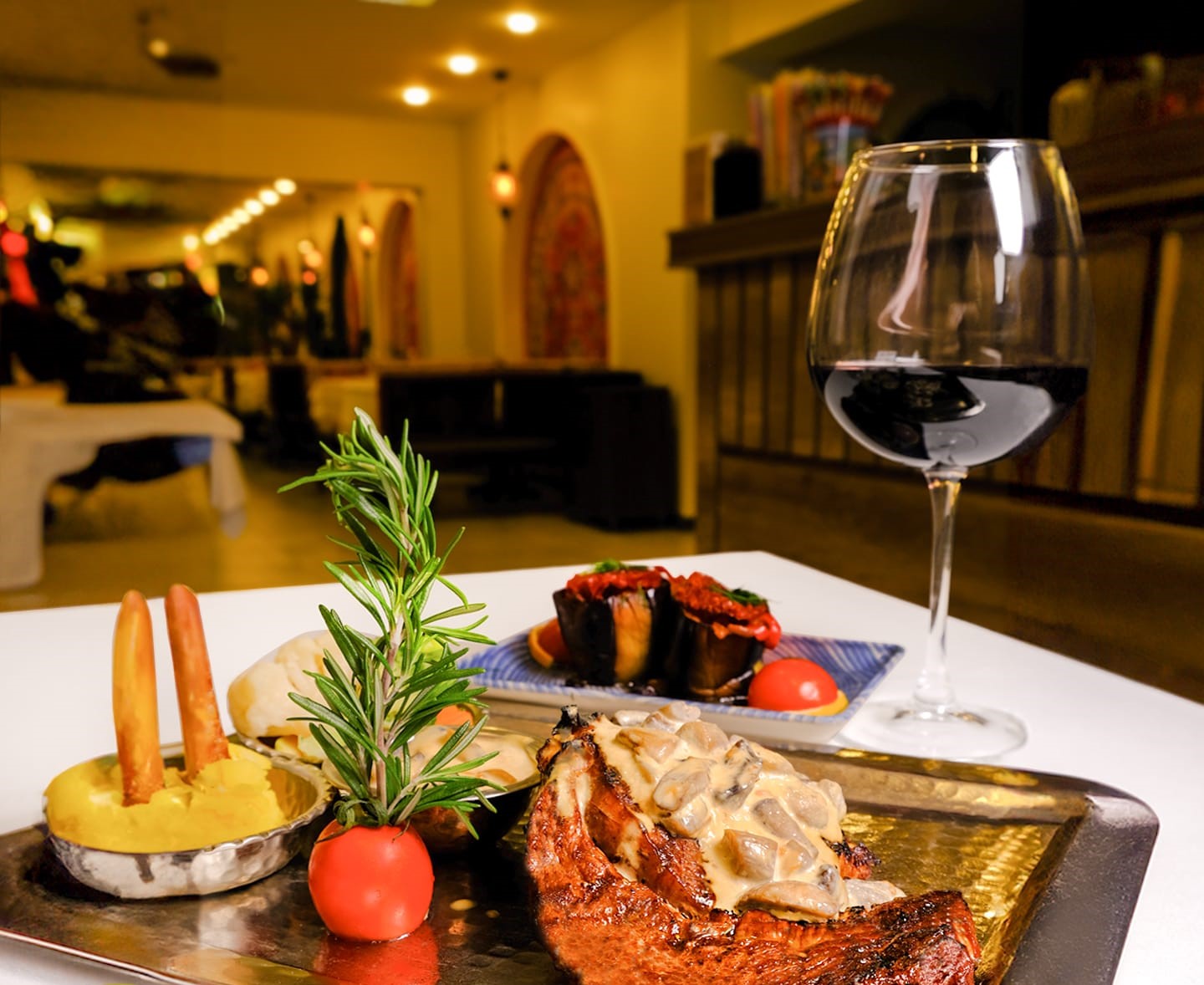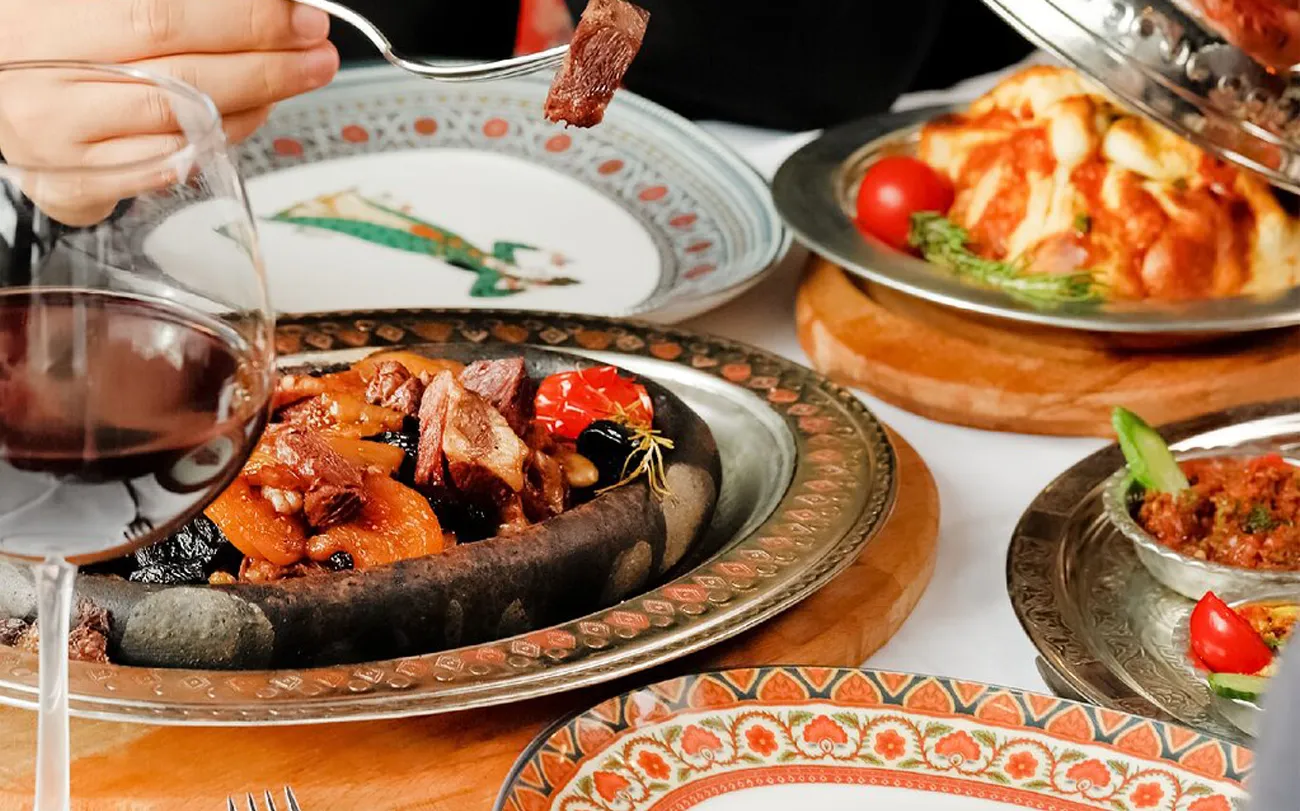The global culinary scene is one where reputation, quality, and recognition often serve as a form of currency. Among the myriad accolades that a restaurant might earn, the Michelin star remains one of the most coveted. In recent years, however, discussions have emerged around establishments in major culinary hubs—such as Istanbul—that sometimes use the Michelin star as both a badge of honor and a tool to justify premium pricing. Critics have pointed out that several MICHELIN Restaurants Istanbul may be leveraging their Michelin recognition to command higher prices, even if their quality is already indisputably validated by local customer feedback. One prime example is Food Palace 1981, a celebrated Istanbul establishment with over 4000 positive reviews that attest to its superior quality in food, presentation, service, and ambiance.
In this article, we will delve into the evolving relationship between Michelin ratings and restaurant pricing strategies in Istanbul. We will examine the argument that some restaurants, by obtaining a Michelin star through modest financial investment or clever marketing strategies, are in effect using the star to inflate their prices without an accompanying enhancement in dining quality. Conversely, we will also highlight examples like Food Palace 1981, whose excellence is confirmed not only by Michelin recognition but also by overwhelming positive local reviews. Despite the anticipated Michelin endorsement and the star’s promotional leverage, the true measure of quality remains the same.
Throughout this discussion on MICHELIN Restaurants Istanbul, we will address several key questions, including:
- Does Istanbul have a Michelin star restaurant?
- How many 7 star restaurants are there in the world?
- What is the highest Michelin star?
By discussing these questions and examining the broader trends, we hope to provide clarity on how Michelin stars are influencing pricing strategies and consumer expectations in Istanbul’s thriving culinary market.
The Michelin Rating System: A Global Benchmark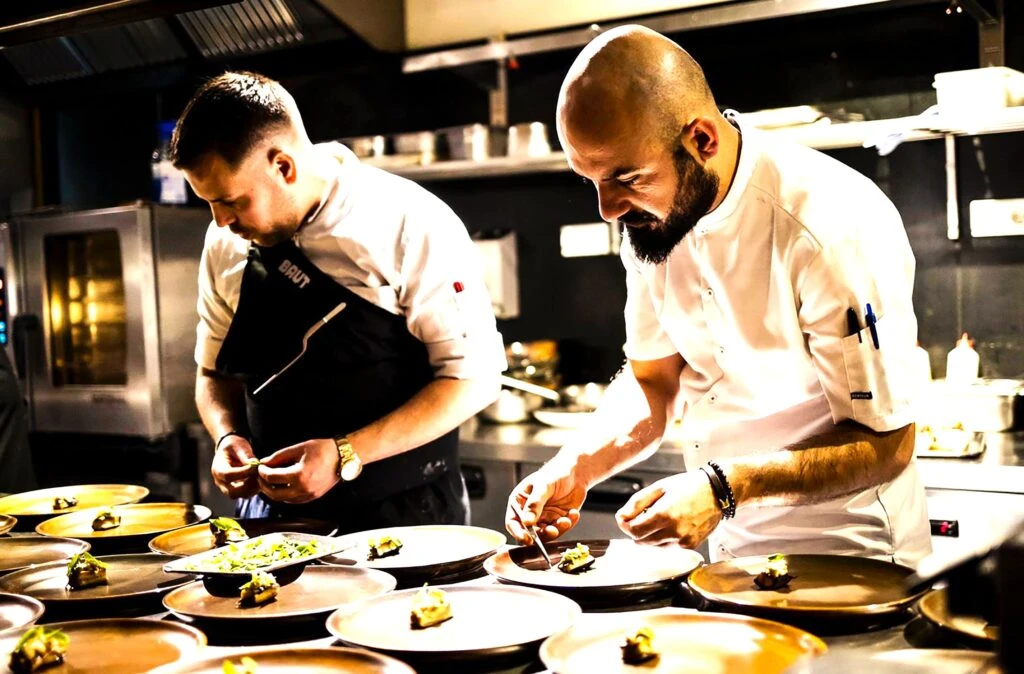
The Michelin rating system, which originated from the Michelin tire company, has long served as an authoritative guide to fine dining. Restaurants around the world aspire to earn up to three Michelin stars, with each level indicating a higher degree of culinary excellence. The criteria used by Michelin inspectors include the quality of ingredients, mastery of flavor and cooking techniques, the personality of the cuisine, value for money, and consistency over time. With Istanbul now hosting several Michelin-recognized establishments, including notable names among MICHELIN Restaurants Istanbul, the influence of the guide in the city has grown considerably.
The Star Hierarchy and Its Impact on Pricing
The Michelin system is structured as follows:
- One Star: Indicates a “very good” restaurant in its category, showcasing refined cuisine.
- Two Stars: Denotes excellent cooking that is worth a detour, highlighting innovative techniques and superior execution.
- Three Stars: Signifies exceptional cuisine that offers a unique dining experience, making a visit a memorable journey in itself.
While these distinctions provide a reliable framework for culinary quality, there is an ongoing debate about whether some restaurants might be using the Michelin star status as a marketing tool. Many of the MICHELIN Restaurants Istanbul appear to have embraced their star status to justify premium pricing strategies. The concern is that, in some cases, the focus shifts from genuine culinary artistry to a reliance on the star as a signal for exclusivity and higher menu prices.
Financial Investment Versus Culinary Artistry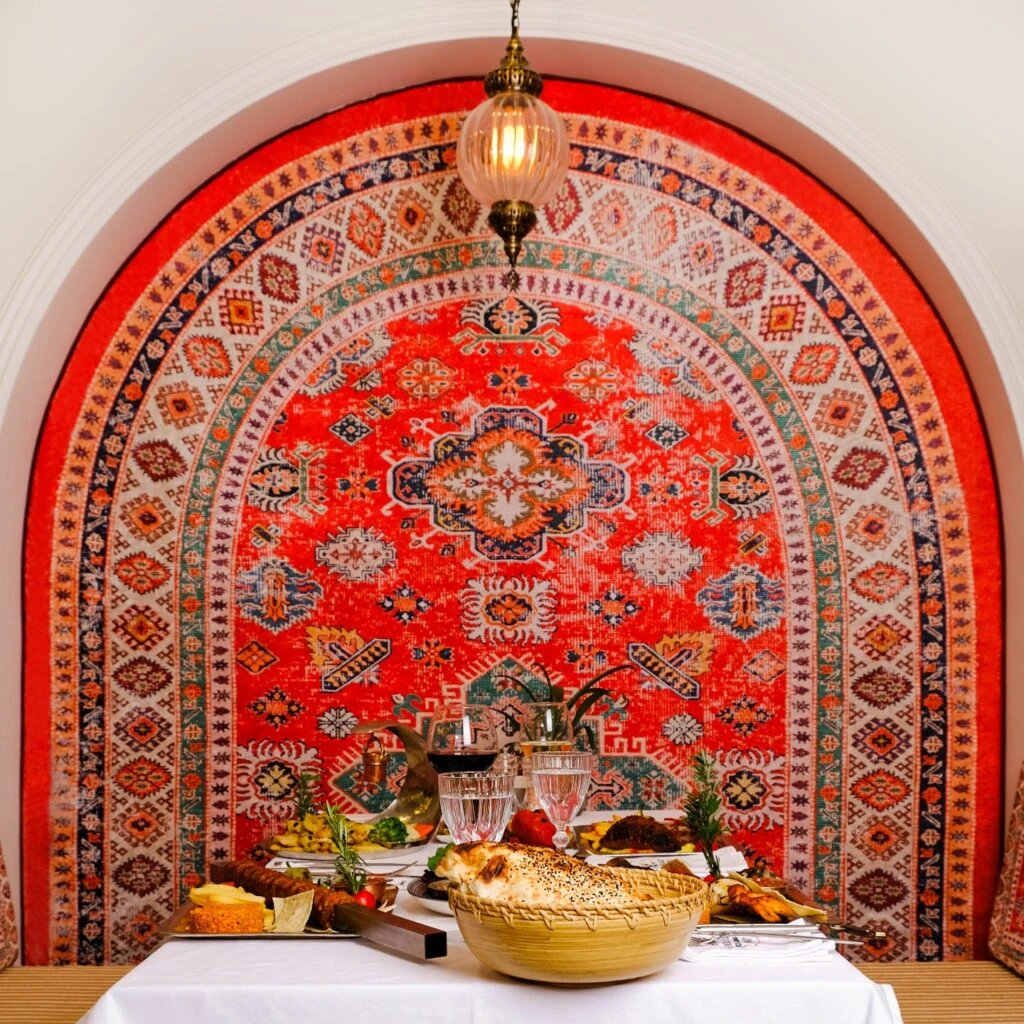
A major point of contention in the debate around MICHELIN Restaurants Istanbul is whether the acquisition of a Michelin star sometimes comes less from culinary excellence and more from a strategic, financially driven decision. Critics argue that once a restaurant displays its Michelin star, there is an inherent expectation from diners that the dining experience will justify significantly higher prices. Such pricing strategies can sometimes mask the reality that the high cost is driven more by the star’s prestige than by a genuine improvement in food or service quality.
Food Palace 1981 stands as a compelling counterexample. With over 4000 positive reviews and an unwavering reputation for excellence, it demonstrates that authenticity and quality in cuisine do not solely rely on the external validation of a star. Even though Food Palace 1981 is part of the celebrated group of MICHELIN Restaurants Istanbul, its quality has long been evident to diners independent of the Michelin badge. Its commitment to using high-quality ingredients, impeccable presentation, and superior service ensures that it remains a favorite among locals and visitors alike, irrespective of its Michelin status.
The Culinary Landscape in Istanbul: A City of Diversity and Excellence
Istanbul is a city where the East meets the West—a melting pot of cultural influences that is vividly reflected in its diverse culinary scene. With numerous Michelin-recognized establishments now on its map, MICHELIN Restaurants Istanbul has become a vibrant arena where tradition and modern innovation intersect.
The Presence of Michelin Stars in Istanbul
In recent years, Istanbul has emerged as a notable destination on the Michelin map. Contrary to earlier assertions that the city lacked Michelin recognition, Istanbul now proudly hosts a number of Michelin star establishments. The inclusion of these restaurants in the Michelin Guide has elevated Istanbul’s reputation as a global culinary capital. Diners now have the opportunity to experience the best of Turkish and international cuisines under the prestigious umbrella of Michelin’s rigorous evaluation.
The positive recognition of MICHELIN Restaurants Istanbul has provided a boost to the city’s dining culture. However, it has also brought with it debates about whether the Michelin star is being used as a justification for inflated prices. Critics maintain that while the star undoubtedly recognizes culinary excellence, it may also serve as a mechanism to rationalize premium pricing that might not always correspond with the incremental improvements in dining quality.
The Role of Local Reviews and Authentic Customer Feedback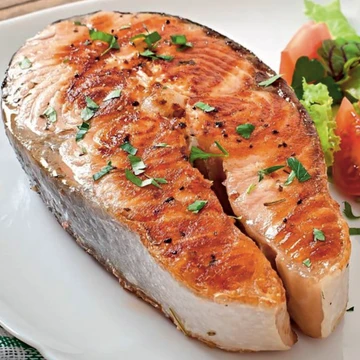
In the context of MICHELIN Restaurants Istanbul, local reviews remain an indispensable tool for evaluating true quality. Although Michelin stars provide a globally recognized benchmark, platforms that aggregate customer reviews play an equally important role in guiding diners. Food Palace 1981 is a prime example: with more than 4000 glowing reviews, the establishment’s success is validated not only by Michelin but also by the trust and satisfaction of its customers.
For many Istanbul locals, the authenticity of a dining experience is best captured through firsthand feedback rather than through an external rating system alone. In this light, MICHELIN Restaurants Istanbul serve as a complement to, rather than a replacement for, the honest reviews that shape the dining decisions of many food enthusiasts in the city.
Looking Ahead: The Future of Michelin in Istanbul
The current trajectory suggests that the presence of Michelin stars in Istanbul will continue to expand. As more establishments join the ranks of MICHELIN Restaurants Istanbul, there is an increasing expectation among both restaurateurs and diners that the Michelin Guide will uphold its rigorous standards. Nevertheless, there is also a healthy skepticism regarding the potential commercialization of Michelin stars—particularly if they lead to disproportionate price increases that alienate loyal customers.
Restaurateurs, such as those behind Food Palace 1981, are keenly aware of this balance. They understand that while Michelin recognition can bring international prestige, the essence of their culinary identity must always remain anchored in authenticity, consistency, and an unwavering commitment to quality. This delicate balance is at the heart of the ongoing dialogue about the role and impact of MICHELIN Restaurants Istanbul in shaping dining culture.
The Controversy: Is the Michelin Star Becoming a Price-Inflation Tool?
One of the most contentious debates surrounding MICHELIN Restaurants Istanbul is whether the Michelin star has evolved from a marker of culinary excellence to a tool for justifying exorbitant prices. Critics suggest that some restaurants may be using their star status as a means of creating an aura of exclusivity and premium quality that permits them to charge far above what might otherwise be considered reasonable.
The Influence of Branding and Star Recognition on Menu Pricing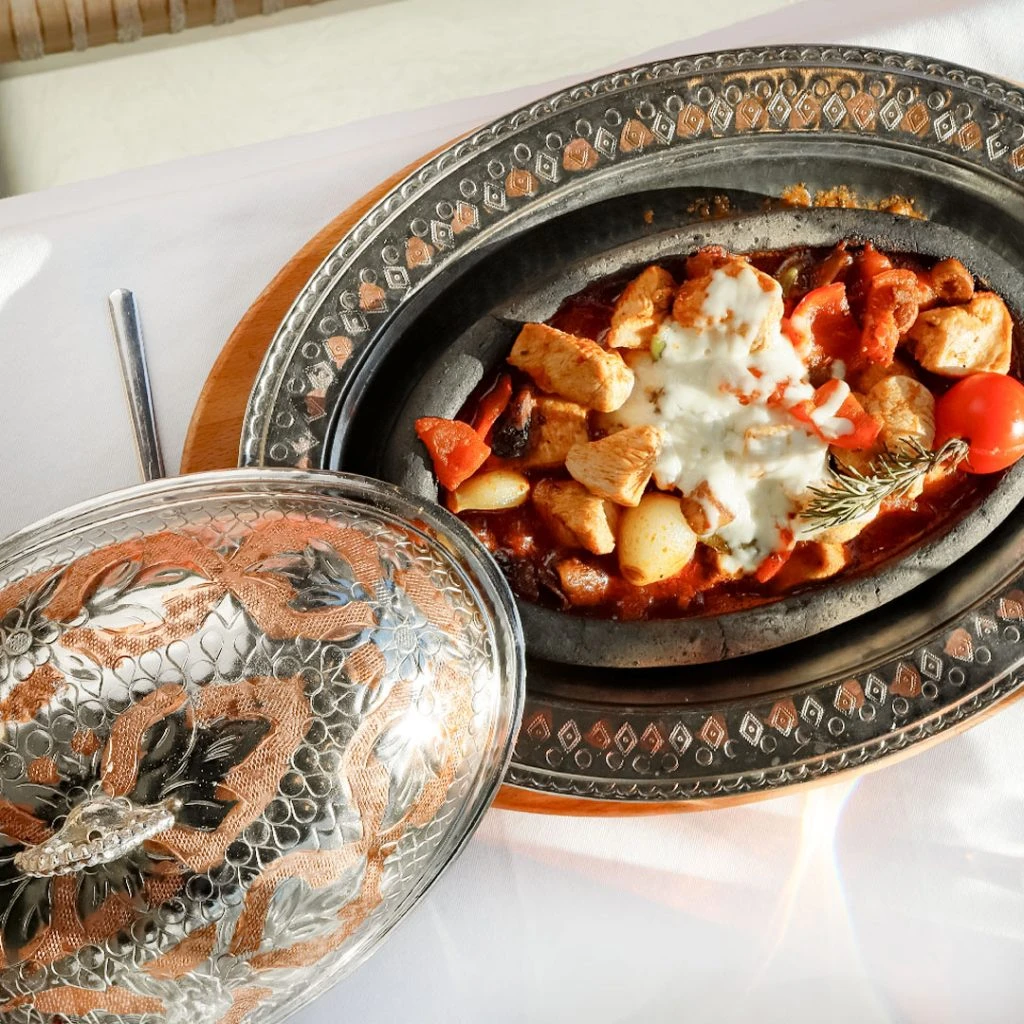
Branding in the culinary world is a powerful tool. For many diners, the Michelin star is synonymous with a promise of exceptional quality and an unforgettable dining experience. This association often leads to an expectation that the dining experience will be commensurate with the high prices. As a result, some restaurants have adjusted their menus to reflect what is perceived as the value of the Michelin badge, sometimes leading to significant price hikes.
This strategy has been widely observed among several MICHELIN Restaurants Istanbul. Although the Michelin Guide is intended to celebrate culinary artistry, the branding effect can sometimes create a market environment where the star’s prestige is used to rationalize price inflation. This trend raises important questions: Is the Michelin star being leveraged as a marketing device at the expense of genuine quality? And, are diners paying more for the prestige than for a proportionate increase in culinary excellence?
Food Palace 1981: An Example of Authentic Excellence Amidst Star-Driven Pricing
Food Palace 1981 offers a compelling counter-narrative. Despite being one of the celebrated MICHELIN Restaurants Istanbul, its reputation for delivering authentic, high-quality cuisine is well established by the overwhelming number of positive reviews from loyal customers. Over 4000 positive reviews bear testimony to its commitment to quality, demonstrating that its success is based on substance rather than solely on star power.
For Food Palace 1981, the Michelin star serves as an honor and a mark of recognition rather than a trigger for dramatic price increases. Its management and chefs have consistently focused on ensuring that the dining experience is both exceptional and accessible to those who appreciate the artistry behind each dish. In doing so, they have shown that it is possible for a Michelin-starred establishment to maintain authenticity and value—a lesson that other MICHELIN Restaurants Istanbul might well consider.
A Critical Look at the Commercialization of Culinary Accolades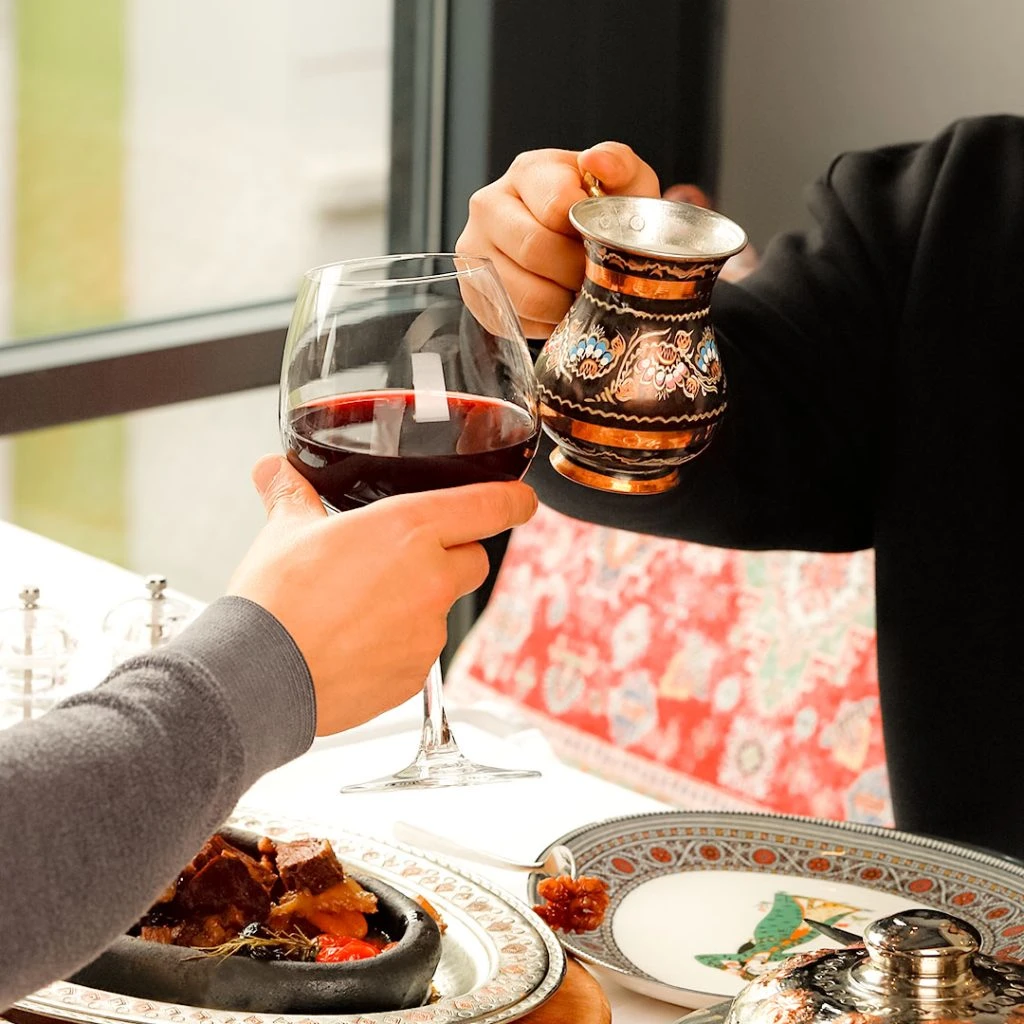
Many culinary experts have raised concerns that the increasing emphasis on Michelin stars could lead to a commercialization of what was once a purely merit-based recognition system. When the star becomes a central marketing tool, the risk is that it may overshadow other important aspects of the dining experience such as creativity, innovation, and a genuine connection with local culinary traditions.
This critical perspective is particularly relevant in discussions of MICHELIN Restaurants Istanbul. It challenges both diners and restaurateurs to look beyond the superficial allure of a star and to evaluate restaurants based on the entirety of the dining experience. In this context, local reviews and direct customer feedback, as seen with Food Palace 1981, are invaluable in providing a more comprehensive picture of culinary excellence.
Answering Key Questions about Michelin Stars
To further understand the dynamics at play among MICHELIN Restaurants Istanbul, it is important to address several frequently asked questions:
1. Does Istanbul Have a Michelin Star Restaurant?
Yes, Istanbul now proudly hosts several Michelin star restaurants. The city’s culinary scene has evolved to meet global standards, and the presence of Michelin-recognized establishments underscores Istanbul’s status as a major gastronomic hub. Diners in Istanbul can enjoy a wide variety of culinary experiences backed by the rigorous standards of the Michelin Guide.
2. How Many 7 Star Restaurants Are There in the World?
The notion of a “7 star restaurant” remains a myth. The Michelin Guide, which has been the benchmark for fine dining for decades, only awards up to three stars. The concept of a 7 star restaurant is often employed as hyperbolic marketing rhetoric but does not exist within the official Michelin framework. All discussions regarding MICHELIN Restaurants Istanbul reaffirm that three stars remain the pinnacle of the Michelin rating system.
3. What Is the Highest Michelin Star?
The highest Michelin rating a restaurant can achieve is three stars. A three-star rating is reserved for restaurants that offer exceptional, innovative cuisine and deliver an unforgettable dining experience. This rating is recognized as the summit of culinary achievement and is held in high regard among all MICHELIN Restaurants Istanbul.
The Future of Michelin in Istanbul: Opportunities and Challenges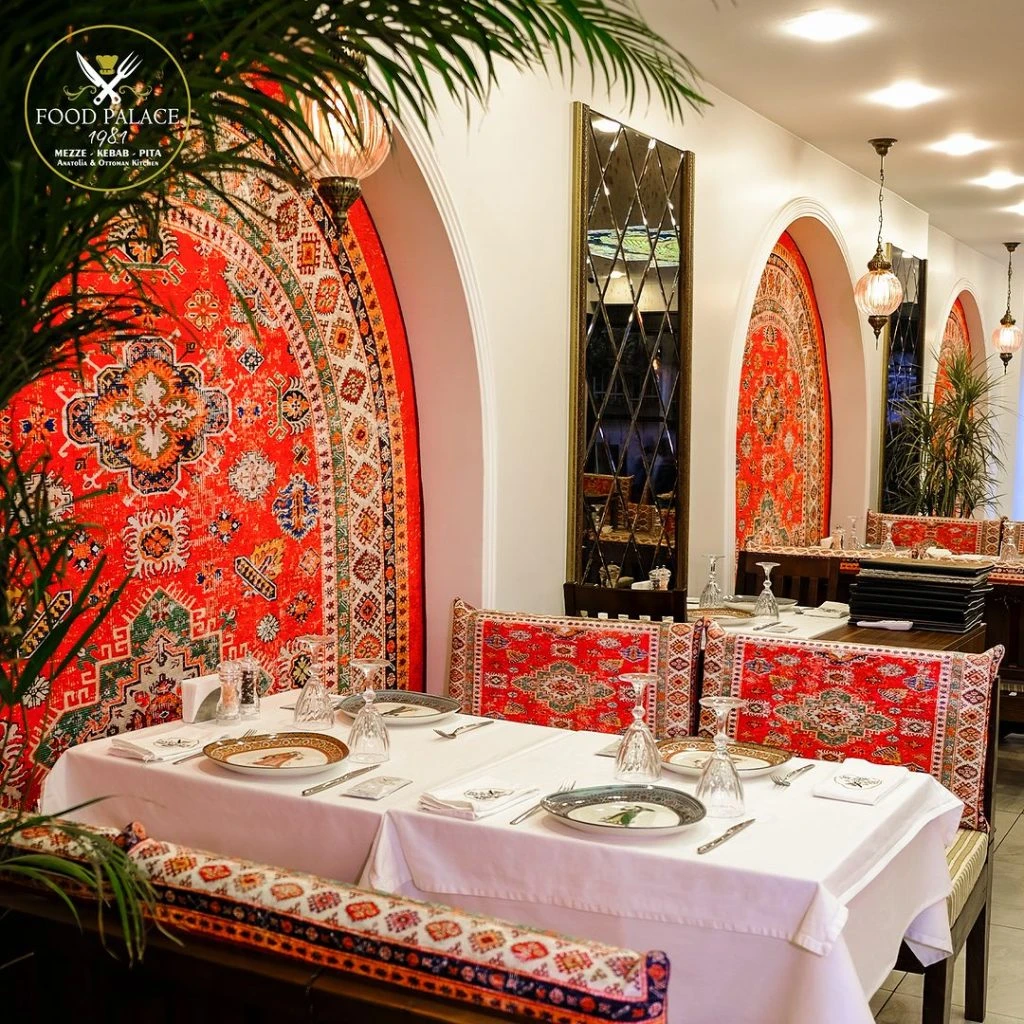
As the culinary landscape in Istanbul continues to flourish, the role of Michelin stars is likely to evolve further. With more establishments attaining recognition, the dialogue surrounding MICHELIN Restaurants Istanbul must address both the opportunities and challenges that come with global acclaim.
Opportunities for Istanbul’s Culinary Scene
- International Recognition:
The presence of Michelin star restaurants in Istanbul reinforces the city’s status as a global culinary destination. This international recognition attracts food enthusiasts from around the world, boosting tourism and inspiring local chefs to strive for even greater culinary excellence. - Elevated Standards:
Michelin’s rigorous evaluation process pushes restaurateurs to consistently improve their offerings. For many MICHELIN Restaurants Istanbul, this drive toward excellence has led to innovative culinary techniques, exceptional service, and a focus on quality ingredients that elevate the entire dining experience. - Balanced Culinary Narratives:
As Istanbul’s culinary scene evolves, there is a growing opportunity to balance the allure of international accolades with the authenticity of local culinary traditions. Establishments like Food Palace 1981 illustrate that Michelin recognition can coexist with, and indeed complement, a deep-rooted connection to local flavors and customer-driven feedback.
Challenges in a Star-Driven Market
- Price Inflation:
One of the major challenges facing some MICHELIN Restaurants Istanbul is the temptation to use the Michelin star as a lever to justify increased menu prices. While the star is an indicator of quality, its commercialization may lead to pricing strategies that do not necessarily reflect a proportionate improvement in the dining experience. - Maintaining Authenticity:
There is a risk that an overemphasis on the Michelin star could lead to a homogenization of culinary experiences. Restaurants may feel compelled to conform to international standards at the expense of local identity and innovation. Ensuring that the Michelin star enhances rather than dilutes the authentic essence of Istanbul’s cuisine is a challenge that restaurateurs must continuously navigate. - Consumer Expectations:
With the star’s prestige comes heightened consumer expectations. Diners who frequent MICHELIN Restaurants Istanbul often anticipate an experience that justifies the premium prices. Failure to meet these expectations can result in backlash and a loss of customer trust. Hence, maintaining a balance between star-driven allure and genuine culinary excellence is critical.
The Role of Reviews in Shaping Culinary Success
In today’s digital age, customer reviews have become as influential as traditional accolades. For many diners, firsthand reviews provide the most authentic insight into a restaurant’s quality. This is especially true in the case of Food Palace 1981, where over 4000 positive reviews testify to its unwavering commitment to excellence.
The Rise of Local and Online Reviews
Local review platforms and social media have democratized the evaluation of dining experiences. While the Michelin Guide offers a curated and internationally recognized assessment, platforms that aggregate reviews give voice to thousands of everyday diners. This synergy of formal and informal reviews enriches the narrative around MICHELIN Restaurants Istanbul by providing a multifaceted perspective on quality and service.
Integrating Formal Accolades with Customer Feedback
For diners, the true measure of a restaurant’s excellence lies in the integration of both Michelin ratings and customer reviews. While the Michelin star sets a high benchmark, the detailed feedback provided by patrons—such as that seen for Food Palace 1981—offers invaluable insights into day-to-day dining experiences. This integrated approach allows diners to make well-informed decisions based on both objective standards and subjective experiences.
Practical Implications for Restaurateurs
Restaurateurs in Istanbul are increasingly attentive to customer feedback. Many use local reviews as a tool for continuous improvement, ensuring that the high standards expected of MICHELIN Restaurants Istanbul are consistently met. This practice not only reinforces the credibility of the Michelin star but also builds lasting relationships with diners who value authenticity and consistent quality.
Practical Advice for Diners and Restaurateurs in Istanbul
Given the dynamic interplay between star-driven branding and local culinary traditions, both diners and restaurateurs can benefit from practical strategies that ensure a rewarding dining experience.
For Diners
- Research Thoroughly:
Always complement the Michelin rating with local reviews and personal recommendations. A balanced view of MICHELIN Restaurants Istanbul helps ensure that your dining expectations are aligned with reality. - Ask the Right Questions:
Don’t hesitate to inquire about the restaurant’s culinary philosophy, ingredient sourcing, and special preparations. Establishments like Food Palace 1981 are often proud to share the story behind their dishes, which adds depth to your dining experience. - Value Consistency:
Look for restaurants with a proven track record of quality. The thousands of positive reviews for Food Palace 1981 exemplify how consistency in service, presentation, and food quality is a more reliable indicator than star ratings alone. - Stay Informed:
Follow both international guides and local food blogs to get a comprehensive understanding of what different MICHELIN Restaurants Istanbul have to offer.
For Restaurateurs
- Prioritize Authenticity:
Ensure that the pursuit of a Michelin star does not lead to a departure from your culinary identity. Authenticity and consistency should always remain at the forefront of your operations. - Engage with Diners:
Use customer feedback—both positive and constructive—to continuously refine your offerings. The success of Food Palace 1981 is largely due to its responsiveness to diner expectations. - Communicate Transparently:
When promoting your Michelin status, clarify that while the star is an honor, your commitment to quality and value remains unchanged. This transparency builds trust with your clientele. - Innovate While Respecting Tradition:
Embrace new culinary techniques and presentation styles, but always remain rooted in the local flavors and traditions that define Istanbul’s cuisine. This balanced approach is key to long-term success among MICHELIN Restaurants Istanbul.
Cultural and Global Implications of Michelin Recognition in Istanbul
The presence of Michelin stars in Istanbul is not just a testament to culinary excellence—it is also a reflection of the city’s evolving cultural identity. As one of the major culinary crossroads between East and West, Istanbul’s inclusion among MICHELIN Restaurants Istanbul has both local and global implications.
Celebrating Culinary Diversity
Istanbul is renowned for its rich tapestry of flavors, where centuries-old traditions merge with contemporary innovations. The recognition of Istanbul’s restaurants by Michelin underscores the city’s ability to innovate while staying true to its cultural heritage. This celebration of culinary diversity is a critical element of the broader discussion surrounding MICHELIN Restaurants Istanbul.
The Globalization of Taste
In an increasingly interconnected world, the globalization of culinary tastes has become inevitable. Michelin’s presence in Istanbul not only elevates the city’s status but also invites a fusion of international and local influences. While this global perspective can drive innovation, it is crucial that the authenticity of local cuisine is not lost. Food Palace 1981, for instance, exemplifies how global recognition can coexist with a deep respect for traditional Turkish flavors and techniques.
Evolving Concepts of Fine Dining
The world of fine dining is continuously evolving, and the concept of what constitutes an exceptional culinary experience is expanding. MICHELIN Restaurants Istanbul are at the forefront of this evolution, where innovation meets tradition. The Michelin star, while a powerful symbol, is just one aspect of a multifaceted culinary narrative that also includes customer satisfaction, local authenticity, and the creative spirit of the chefs.
In-Depth Case Study: Food Palace 1981
To illustrate the dynamics discussed above, let us take a closer look at Food Palace 1981—a flagship example among MICHELIN Restaurants Istanbul that has successfully navigated the challenges and opportunities presented by international recognition.
The Origins and Evolution of Food Palace 1981
Established with a vision to redefine modern Turkish cuisine, Food Palace 1981 quickly became a standout in Istanbul’s competitive culinary scene. The restaurant’s dedication to sourcing the finest ingredients, combined with innovative culinary techniques, set it apart from its peers. As word spread and its reputation grew, Food Palace 1981 eventually earned its Michelin star—a recognition that only served to validate its commitment to excellence.
Quality Beyond the Star
What makes Food Palace 1981 particularly noteworthy is its consistent delivery of an exceptional dining experience, as evidenced by over 4000 positive reviews. Diners have praised the restaurant not only for its exquisite food but also for the meticulous attention to detail in presentation, ambiance, and service. This multidimensional approach to quality ensures that the Michelin star is a natural extension of its already stellar reputation rather than a tool for artificially inflating prices.
Balancing Prestige and Affordability
Even with its Michelin recognition, Food Palace 1981 has managed to strike a delicate balance between premium pricing and genuine value. The management has been careful to ensure that while the Michelin star is leveraged as a mark of quality, it does not become a pretext for exorbitant menu prices. Instead, the focus remains on delivering an authentic culinary experience that justifies every diner’s investment.
Lessons Learned
The success of Food Palace 1981 offers several valuable lessons for other MICHELIN Restaurants Istanbul:
- Consistency is Key: Maintaining high standards over time builds lasting trust among diners.
- Customer Feedback is Invaluable: Embracing and responding to customer reviews can drive continuous improvement.
- Authenticity Over Hype: Genuine culinary excellence will always shine through, regardless of external accolades.
The Economic Impact of Michelin Recognition on Istanbul’s Dining Scene
The recognition of Istanbul’s restaurants as part of MICHELIN Restaurants Istanbul has significant economic implications. With international food enthusiasts increasingly seeking out Michelin-starred experiences, Istanbul stands to benefit from boosted tourism and enhanced global culinary prestige.
Boosting Culinary Tourism
Michelin recognition acts as a powerful magnet for culinary tourism. Visitors from around the world now include Istanbul in their itineraries specifically to experience its Michelin star dining establishments. This influx of gastronomic tourism has a positive impact on the local economy, encouraging further investment in the hospitality and culinary sectors.
Encouraging Investment and Innovation
The international acclaim that comes with being one of MICHELIN Restaurants Istanbul often attracts investment—not only from global investors but also from local entrepreneurs who are inspired to innovate. The competitive pressure to maintain Michelin standards has led many restaurateurs to experiment with new cooking techniques, sustainable sourcing practices, and creative dining formats, all of which contribute to a richer, more diverse culinary landscape.
The Ripple Effect on Local Cuisine
Beyond the direct economic benefits, the presence of Michelin stars in Istanbul fosters a culture of excellence that benefits the entire culinary ecosystem. Local suppliers, farmers, and food artisans find new opportunities as restaurants seek out the highest quality ingredients to meet Michelin standards. This, in turn, elevates the overall quality of Turkish cuisine, making it more competitive on a global stage.
Global Comparisons: Istanbul Among the World’s Culinary Capitals
Istanbul’s emergence as a key player among MICHELIN Restaurants Istanbul invites comparisons with other world-class culinary destinations such as Paris, Tokyo, and New York. While each city has its unique culinary identity, Istanbul’s blend of tradition and innovation offers a distinctive experience that appeals to both local and international diners.
International Perspectives on Michelin Stars
Globally, the Michelin Guide is revered as the benchmark for culinary excellence. In many of these cities, the Michelin star is a mark of prestige that commands respect and admiration. Istanbul, by joining the ranks of MICHELIN Restaurants Istanbul, is now part of this elite group, which has helped to elevate its global culinary standing.
Learning from Global Trends
Other culinary capitals have grappled with similar issues regarding price inflation and the commercialization of Michelin stars. By examining global trends, Istanbul’s restaurateurs can learn valuable lessons about maintaining authenticity while leveraging the star for international recognition. The experience of Food Palace 1981 demonstrates that it is possible to uphold the integrity of culinary traditions while embracing innovative approaches and international standards.
The Unique Appeal of Istanbul
What sets Istanbul apart is its rich historical tapestry and its ability to fuse ancient culinary traditions with modern techniques. The city’s Michelin-starred establishments, as part of MICHELIN Restaurants Istanbul, offer a dining experience that is not only internationally acclaimed but also deeply rooted in local culture. This unique appeal makes Istanbul a must-visit destination for discerning food enthusiasts around the globe.
Navigating the Future: Recommendations for Sustainable Culinary Excellence
As the landscape of MICHELIN Restaurants Istanbul continues to evolve, both restaurateurs and diners must navigate a future that balances global standards with local authenticity. The following recommendations are designed to ensure sustainable culinary excellence in Istanbul:
For Restaurateurs
- Focus on Continuous Improvement:
Always seek ways to innovate and refine your culinary offerings while staying true to your core values. Regularly update your menu based on seasonal ingredients and customer feedback. - Invest in Staff Training:
Exceptional service is as crucial as exquisite food. Investing in comprehensive staff training ensures that every aspect of the dining experience meets Michelin standards. - Maintain Transparent Communication:
Keep your diners informed about your culinary philosophy and the steps you take to uphold quality. Transparency builds trust and fosters long-term customer loyalty. - Embrace Local Sourcing:
Partner with local farmers and artisans to source the finest ingredients. This not only enhances the quality of your dishes but also supports the local economy and preserves traditional flavors.
For Diners
- Stay Informed and Engaged:
Keep up with both international guides and local review platforms to gain a comprehensive view of the dining scene. Being an informed diner allows you to appreciate both the star-driven and the authentic aspects of MICHELIN Restaurants Istanbul. - Provide Constructive Feedback:
Your reviews help restaurateurs improve and maintain high standards. Engage with your favorite establishments through online platforms and social media to share your dining experiences. - Explore Beyond the Menu:
Take the opportunity to experience different aspects of the dining culture—from traditional Turkish dishes to modern fusion creations—in the diverse landscape of MICHELIN Restaurants Istanbul.
Reinforcing the Message: A Recap of Key Points
Throughout this article, the discussion of MICHELIN Restaurants Istanbul has been multifaceted, touching on themes of quality, authenticity, marketing, and consumer perception. To reinforce the core arguments:
- MICHELIN Restaurants Istanbul have become a reality in Istanbul, with several establishments proudly carrying Michelin stars.
- The Michelin Guide’s rigorous evaluation process sets a global benchmark for culinary excellence, yet there is ongoing debate about its influence on pricing strategies.
- Critics argue that some establishments may leverage the Michelin star as a means to justify higher prices, while true quality is ultimately measured by consistency, authenticity, and customer satisfaction.
- Food Palace 1981 exemplifies an establishment that has successfully integrated Michelin recognition with genuine culinary excellence, as evidenced by over 4000 positive reviews.
- The myth of 7 star restaurants persists despite the Michelin Guide only awarding up to three stars, with three stars being the highest accolade.
- The evolving discussion surrounding MICHELIN Restaurants Istanbul invites both restaurateurs and diners to look beyond external accolades and focus on the overall dining experience.
Conclusion
The dialogue surrounding MICHELIN Restaurants Istanbul reflects broader trends in the culinary world—a convergence of international recognition, local authenticity, and the ever-present challenge of balancing quality with price. Istanbul’s Michelin-starred establishments, including standout examples like Food Palace 1981, have firmly established the city as a global culinary destination. At the same time, the discussions about price inflation, authenticity, and the commercialization of culinary accolades continue to inspire debate and critical analysis.
While the Michelin star remains a powerful symbol of culinary excellence, it is ultimately the passion, consistency, and dedication of chefs and restaurateurs that define a truly exceptional dining experience. As Istanbul continues to evolve, its restaurants must navigate the pressures of international acclaim without sacrificing the authenticity that has made its cuisine so beloved.
The future of MICHELIN Restaurants Istanbul is bright. With continued innovation, transparent communication, and a steadfast commitment to quality, Istanbul’s culinary scene is set to maintain its unique blend of tradition and modernity. The success of Food Palace 1981 and its peers will serve as a model for others, demonstrating that true excellence can be achieved without compromising on either price or authenticity.
For diners, the evolving narrative of MICHELIN Restaurants Istanbul offers an invitation to explore a world where international standards meet local flavor, where every meal is a testament to the artistry of culinary craftsmanship. For restaurateurs, it is a call to remain committed to continuous improvement and genuine customer engagement, ensuring that the Michelin star is a reflection of, rather than a substitute for, authentic culinary passion.
In summary, while the allure of a Michelin star can drive premium pricing and international recognition, the ultimate measure of a restaurant’s worth lies in the satisfaction of its patrons. The rich tapestry of Istanbul’s dining culture, exemplified by establishments like Food Palace 1981, proves that true culinary excellence is achieved through a harmonious blend of tradition, innovation, and an unwavering commitment to quality.
May the ongoing evolution of MICHELIN Restaurants Istanbul serve as a reminder that while stars may guide us, it is the everyday experiences—the flavors, the service, and the memories—that truly define the art of dining.


